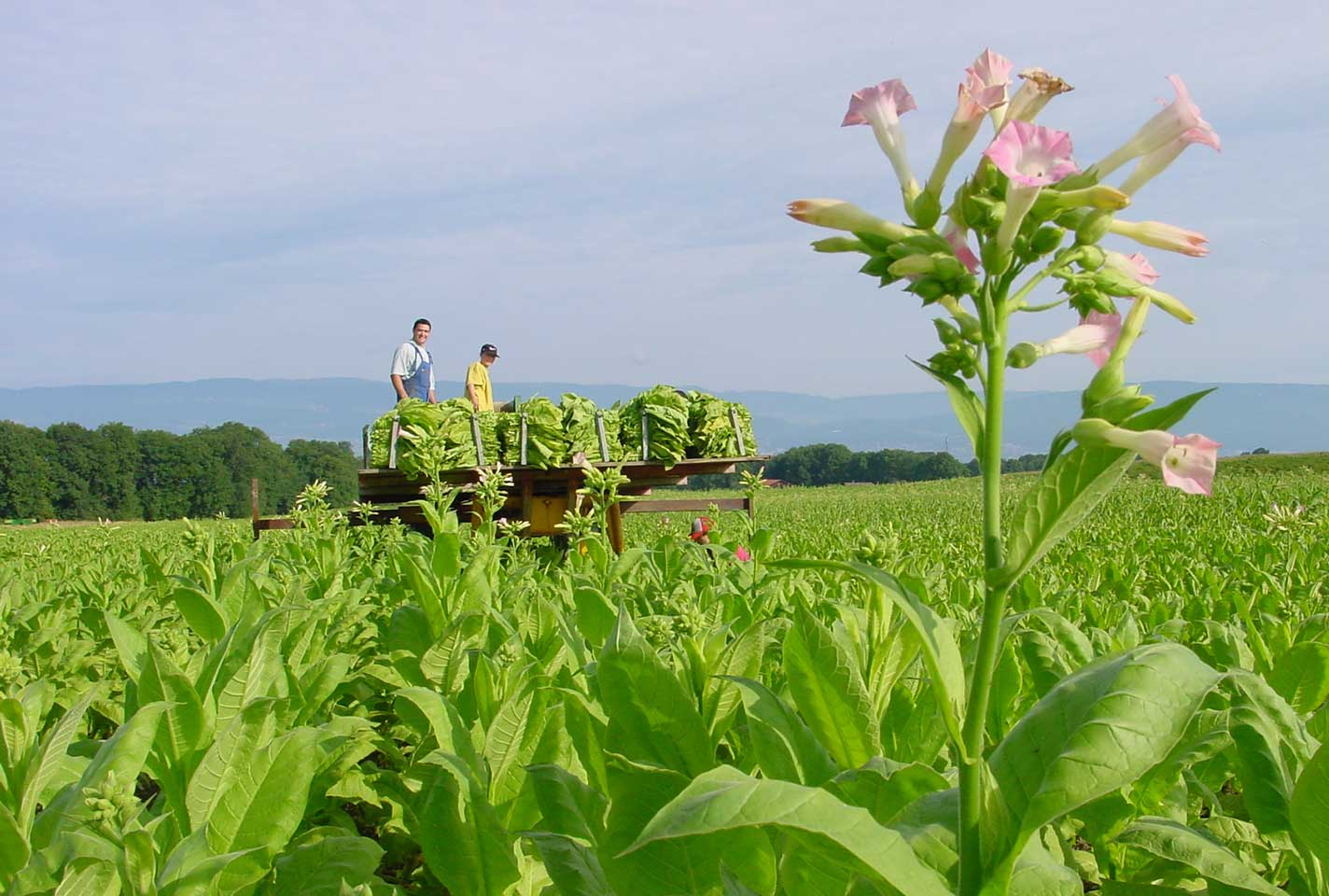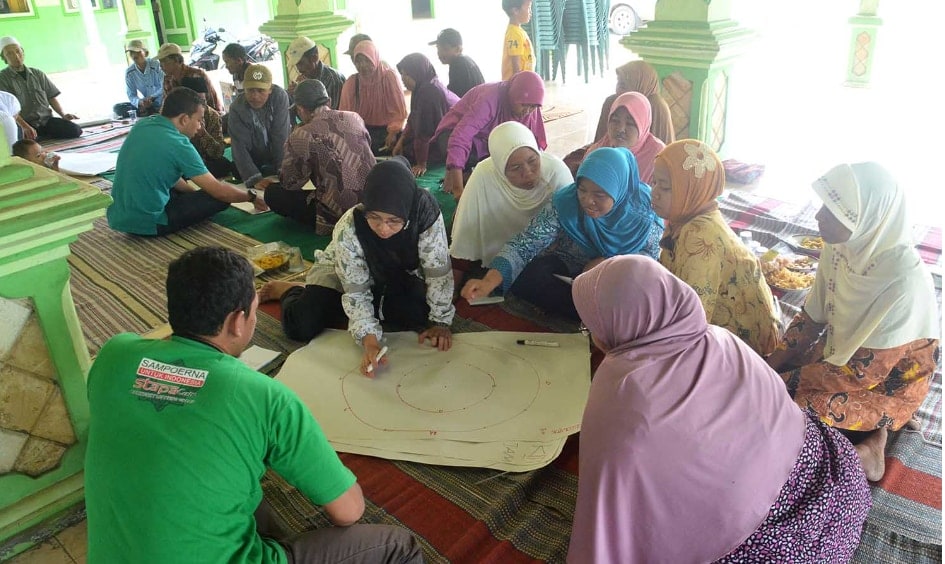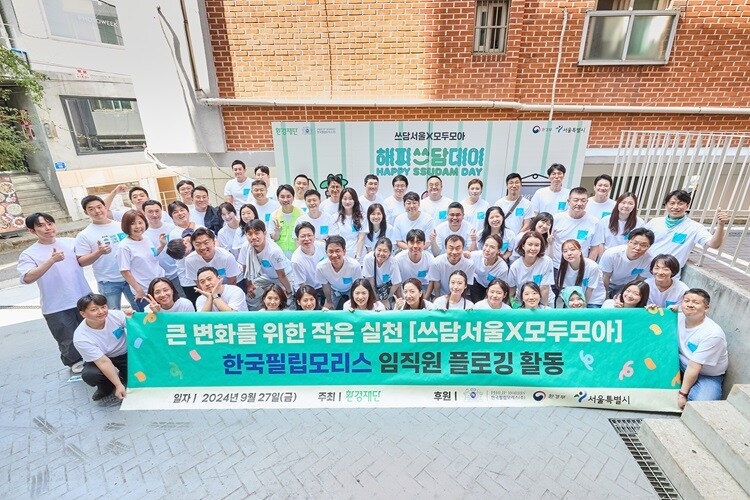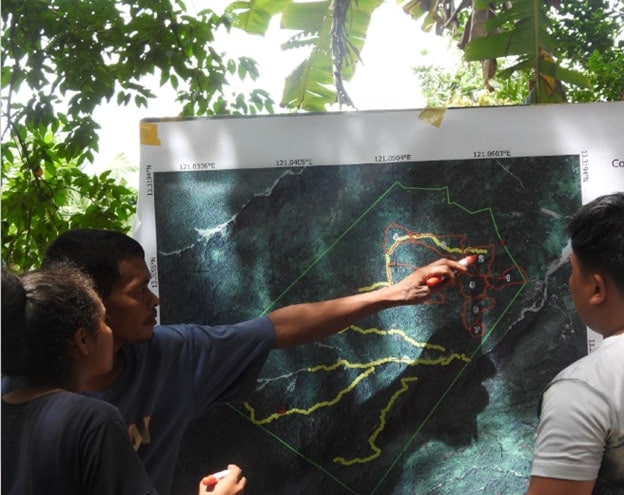Our operations rely on securing high-quality, cost-effective, and fit-for-use materials and services from suppliers. PMI’s supplier engagement strategy aims to ensure that suppliers are reliable, and align with our sustainability aspirations and responsibilities. Having a robust, cross-functional supplier engagement program covering sustainability for electronics suppliers and tobacco leaf suppliers, as well as those who supply other direct and indirect materials and services, is important for achieving our business objectives.
Our supply chain accounts for a significant portion of potential social and environmental impacts, risks and opportunities. We are committed to collaborating with our value chain partners in identifying and managing these responsibly.
With a network of over 21,400 suppliers and 361,00 contracted farmers, our supply chain represents a significant opportunity. It enables us to deliver scientifically substantiated, less-harmful alternatives to cigarettes as we accelerate towards our goal of achieving at least 2/3 of net adjusted revenue from smoke-free by 2030. Engagement with this vast ecosystem also helps us manage risks and seize opportunities related to social and environmental considerations.

How our Supplier Engagement Program works
Embedding sustainability across our supply chain requires collaboration, structure, and expertise. That is why we have anchored our Supplier Engagement Program cross-functionally, ensuring that sustainability is integrated across our work with the supply chain—from direct and indirect materials to tobacco leaf suppliers. Each procurement category benefits from dedicated sustainability professionals who work closely with our suppliers to integrate, and, where possible, strengthen sustainable business practices in their own operations.
Onboarding and due diligence
Supplier engagement follows a structured process that includes the following: Onboarding and due diligence, monitoring progress and adherence, and addressing risks and issues.
First and foremost, by accepting to work with PMI, suppliers are committing to comply with the Fundamental Principles of our Responsible Sourcing Principles (RSPs). The RSPs define expectations from suppliers and extend upstream to their suppliers, too. They also outline requirements to ensure a long-term sustainable supply that protects the environment and enhances livelihoods within our value chain. They are also closely aligned with PMI’s Code of Conduct and clearly outline the minimum criteria that suppliers must adhere to in order to work with us. These include environmental and human rights principles, as well as a set of clear implementation guidance for suppliers who may need help getting started. Reference to the RSPs is included in supplier contractual commitments.
At PMI, we follow a rigorous, risk-based approach to due diligence in all relevant policies, risk management systems, and business practices across our company. We have referenced our commitment and approach to due diligence in various company policies and standards, such as our Human Rights Commitment, Responsible Sourcing Principles (RSP), and Zero Deforestation Manifesto and Commitments (all, collectively, “PMI Policies”).
PMI Policies provide the rules and principles that we follow to carry out our business, from how we run our operations and develop, manufacture, and sell our products to how we engage in relationships with our direct and indirect business partners.
As such, suppliers receive regular briefings on key guidance including the Responsible Sourcing Principles, and Good Agricultural Practices, the Sustainable Tobacco Supply Chain Framework, as well as relevant programs where supplier performance contributes to PMI’s sustainability aspirations—such as data sharing expectations and platforms.
.jpg)
Monitoring risks and adherence
Proactively monitoring the sustainability performance of our suppliers is paramount to our ability to prevent, identify, and mitigate sustainability-related risks.
To monitor supplier adherence to RSP and their performance on sustainability related topics, we collaborate with credible third parties to perform desk-based assessments and on-site audits. On a quarterly basis, we run supplier performance reviews in which we coach suppliers and provide guidance on the closure of previously identified gaps.
In addition, as part of our ongoing monitoring and support efforts, we identify our suppliers’ potential sustainability-related risks. Our screening methodology includes country-specific, sector-specific, and commodity-specific risks to determine a list of significant suppliers for engagement. We then engage with the suppliers who have the highest risk , through various channels, including webinars, quarterly sustainability reviews, and face-to-face site visits.
Specifically for monitoring the performance of our tobacco suppliers, we engage with our third-party suppliers and vertically integrated operations to devote resources and a team of “feet on the ground” in the form of agronomists, or field technicians, to visit farms, oversee the crop production and monitor
social and environmental practices as per our ALP Code and Environmental Commitment.
This infrastructure helps us to understand and integrate sustainability across all procurement categories, identifying opportunities as well as risks and impacts.
Addressing risks and identified issues
When issues are identified in our supply chain, we engage with suppliers to address them effectively. Risk-based assessments provide valuable input into the measures we design and implement to prevent or mitigate potential adverse impacts and, if they were to occur, end actual adverse ones. These assessments often lead to specific escalations, prevention or corrective action plans, and, potentially in our supply chain, a path to suspension or termination of a particular activity or relationship that may be causing or contributing to an adverse impact.
When issues are identified in the supply chain, we work together with suppliers to remedy potential impacts. For instance, when needed, PMI organizes one-on-one meetings between PMI’s sustainability experts and suppliers on specific areas of improvement. We also offer standardized training packages through online partner platforms and in-person sessions for specific improvement areas.
It is the suppliers’ responsibility to put in place a Corrective Action Plan (CAP) and drive improvements in their supply chain . CAPs for Critical Direct Material and electronics suppliers not meeting PMI expectations are reviewed by PMI’s procurement function and sustainability experts, who also offer ongoing guidance.

Tracking progress and reporting back
Tracking supplier performance is important for understanding areas of progress and improvement. As such, PMI leverages leading global service providers of online sustainability supplier assessments to monitor and assess our direct materials suppliers. In 2024, 92 percent of PMI’s total direct material spend was assessed through EcoVadis. Suppliers with low scores are required to implement CAPs.
These plans are segmented by theme, indicator, and priority, and suppliers are required to close identified gaps within an agreed timeframe. PMI actively supports these suppliers by organizing deep-dive review sessions of their CAPs before reassessment, for instance, through direct contact with sustainability experts in PMI, and additional training. In 2024, we actively supported 10 supplier CAP reviews with underperforming suppliers. Overall, six suppliers that we reassessed in 2024 as part of current and previous CAP review cycles improved their scorecards. The average score increase was of 18 points versus previous assessment.
Since 2020, we have also continuously engaged with suppliers to collect primary data for climate-related information, identified opportunities for reduction, and explored environmental partnerships initiatives.
Specifically, with respect to climate, the more we know about the drivers of our emissions, as well as the emissions and profiles of our suppliers, the more effective our activities and projects can be designed to achieve our targeted reductions. In 2024, we made good progress deploying strategies across all categories, while emphasizing reduction plans for air freight, among others, and primary data collection for overland transportation and in-market distribution, which will allow methodological improvements in upcoming years.
The aim has been to increase the use of primary data to improve our carbon accounting accuracy, visibility around opportunities, and traceability of sustainability initiatives. For example, in our direct materials category in 2024, we achieved 85 percent coverage of primary data collection.
As part of our strategy to progressively replace spend-based accounting in our GHG inventory with primary data, the engagement with our suppliers and data-collection process has become increasingly more complex and resource-intensive. Nonetheless, we expect this effort will contribute to enhancing data quality and GHG accounting from our suppliers, as well as driving emissions reductions across our value chain.
Building supplier capabilities to go further, faster
For suppliers who need support in meeting our expectations or who want to accelerate, we engage in targeted capability building programs over and above support on CAPs and regular performance mentioned above.
Since 2023, PMI’s Sustainability Accelerator program has been working to equip suppliers with the knowledge, tools, and support needed to embed sustainability deeper into their operations. This program aims to accelerate the implementation of agreed sustainability initiatives by sharing lessons learned on PMI’s sustainability journey.
The Accelerator uses an integrated approach, addressing sustainability from both performance and reporting perspectives. Experts work individually with each supplier to build capability and share insights. The exclusive workshops allow full customization of the support based on the supplier’s industry sector, sustainability maturity, and geography. Relevant PMI experience, methodologies, and technologies are shared to support sustainability initiatives across the supply chain.
What sets our Sustainability Accelerator apart is its holistic, hands-on approach. Instead of a one-size-fits-all model, the program customizes interventions based on supplier maturity and industry-specific challenges. By combining performance tracking, customized coaching, and real-world implementation support, it goes beyond compliance to drive systemic change.
In 2025, 46 suppliers enrolled in this capability building program, up from five pilot suppliers in 2023 . We plan to continue our work to empower our suppliers with knowledge by expanding our Accelerator program. This expansion is designed to enhance our suppliers’ capabilities and drive the implementation of sustainable practices throughout our supply chain.
The results
Together with robust policies and clear guidance, supplier engagement has helped PMI toward the following resultsi:
- Sustainable sourcing: PMI aims for 100 percent of spend with critical suppliers to be sourced sustainably by 2025. In 2024 , we reached 94 percent. This involved assessing suppliers’ sustainability profiles and prioritizing interventions based on country risk profiles, audit performance, and overall sustainability maturity.
- Science-based targets: PMI engages with critical suppliers to support them in adopting science-based targets for greenhouse gas (GHG) emissions reduction. By 2024, 43 percent of our total supply chain spend was covered by suppliers committed to or having science-based GHG reduction targets. This was achieved in part through dedicated webinars and by incorporating sustainability criteria into our ways of working with suppliers.
- Human Rights Impact Assessments: PMI conducts human rights impact assessments (HRIAs) in high-risk countries where it operates to proactively identify risks and mitigate potential adverse impacts along their operations and value chain. By 2024, we had conducted all 10 HRIAs, achieving our aspiration one year ahead of schedule.
- Child labor: Supplier engagement through the ALP Code has supported systemic elimination of child labor in our tobacco supply chain, with 0.01 percent prevalence of child labor among contracted farmers supplying tobacco to PMI* in 2024—resolving 100 percent of identified cases.
- Living income: Supported by supplier engagement, 99 percent of farmers supplying tobacco to PMI earned a living income in 2024.
- Scope 3 emissions reduction: Supplier engagement on climate has supported a 15 percent absolute reduction in scope 3 CO2 emissions compared to the 2019 baseline.
- Water optimization: 12.3 million cubic meters of water were optimized in tobacco-growing areas since 2019.
- Zero deforestation: We reached zero gross deforestation in our tobacco supply chain in 2020, as well as in our procurement of direct materials in 2023.
In March 2024, PMI was included in CDP’s Supplier Engagement Leaderboard for the seventh consecutive year, distinguishing us as a global leader for engaging with suppliers on climate change and recognizing the effort we have put toward bringing our suppliers along our journey.
For more information on what the Supplier Engagement Program has delivered, please read the 2024 Integrated Report.
We know that the path to a smoke-free future is dependent on strong internal and external collaboration. Our comprehensive supplier engagement program, which prioritizes sustainability across all supplier categories—electronics, tobacco leaf, and other direct and indirect materials—is and will continue to be essential for realizing these goals.
iAll data points refer to PMI’s 2024 Integrated Report
*Aspiration does not cover Swedish Match.




